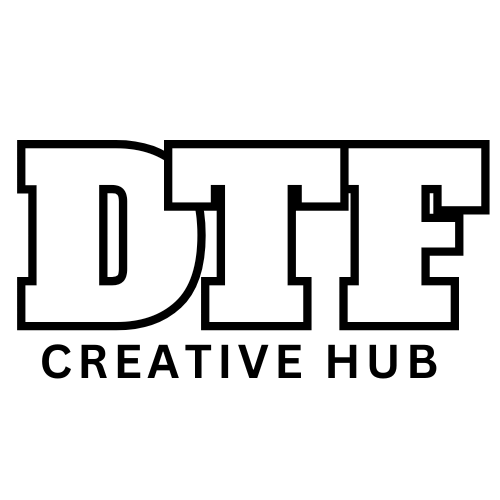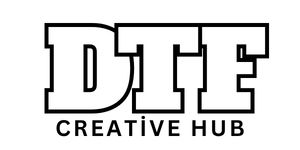Georgia DTF etymology reveals how a bold online shorthand travels from global chat rooms into Georgia’s local digital conversations. By tracing the DTF origin, we can see this slang term diffuse from niche communities to mainstream youth discourse. The journey illustrates how terms move across forums, messaging apps, and social networks, leaving a trace of regional flavor, while communities remix meaning for humor, authority, or tension. Context matters because the same letters can signal different tones—from playful inside jokes to sharper innuendo—depending on audience and platform, and savvy readers learn to read these signals rather than the letters alone. Overall, studying this etymology helps readers understand how online shorthand evolves and how Georgia’s digital culture participates in the broader language shift, illuminating the forces that drive slang across the web.
To frame this discussion from an alternate angle, consider the origin stories of online abbreviations and how they travel between communities rather than from a single creator. The concept examines how digital shorthand emerges, spreads, and mutates as users tailor it for memes, chat norms, and platform constraints. This approach mirrors latent semantic indexing practices, which prioritize related topics, synonyms, and contextual cues to illuminate how a single term connects to broader linguistic patterns. In Georgia’s online spaces, campus networks, social feeds, and local media contribute to the uptake, adaptation, and normalization of such abbreviations within everyday digital talk.
1) Georgia DTF etymology: How a regional cue shaped online slang diffusion
The Georgia DTF etymology illustrates how a regional online vernacular can travel beyond its origin to influence broader slang ecosystems. Rather than a single origin story, the term’s journey shows diffusion through Georgia’s campus chats, urban social scenes, and local memes before it gains wider recognition. This anchored diffusion helps explain how DTF origin stories align with the broader arc of online slang etymology and how regional nuance can illuminate national trends.
In this Georgia-centered lens, the term’s early form—often a concise acronym used in quick exchanges—highlights why it spreads: brevity, memorability, and adaptability. Considering Georgia online slang trends alongside DTF meaning reveals how meaning can shift with audience and platform, yet retain a core sense of readiness or openness. This subchapter demonstrates how the Georgia DTF etymology serves as a microcosm for the diffusion of online slang across communities and channels.
2) DTF origin: tracing the path from niche chats to mainstream culture
DTF origin traces back to late 1990s and early 2000s online culture, where chat rooms, forums, and early mobile messaging created a need for quick, potent shorthand. The origin story is less about a single moment and more about a diffusion process: a compact phrase that resonates across subcultures and platforms. Understanding DTF origin helps readers grasp why this acronym proved so durable in the evolution of online slang.
As the term moved from niche corners of the internet to broader youth culture, it encountered changes in tone, usage, and audience. The evolution of online slang allowed DTF to be sanitized or reinterpreted in different settings—schools, workplaces, and memes—while retaining its essential communicative function. This diffusion also highlights how platform constraints and audience expectations shape meaning within the larger online slang etymology.
3) The evolution of online slang across platforms and impact on DTF meaning
Platform evolution has driven the rapid spread and transformation of slang. From AIM and ICQ to Facebook, Twitter, Instagram, Reddit, and TikTok, each surface imposes its own norms, limits, and audience segmentation. This context helps explain how DTF meaning can shift based on tone, audience, and setting, while the overall concept of openness remains a throughline in the evolution of online slang.
The broader pattern—compression, repetition, and remixing—shows up in DTF as it travels across communities. Memes, username conventions, and short-form videos often reinterpret the term with humor or irony, reflecting the ongoing online slang etymology. The result is a flexible lexeme that adapts to new formats while preserving its core communicative function.
4) Georgia online slang trends: regional diffusion and community dynamics
Georgia online slang trends reveal how local networks—colleges, urban centers, and vibrant digital communities—fuel the uptake and adaptation of terms like DTF. These regional dynamics help explain why Georgia remains a fertile ground for slang diffusion, with terms gaining traction in campus chats before echoing through social networks and media creators. The Georgia online slang trends lens shows how regional nuance can influence pronunciation, connotation, and usage across platforms.
Understanding DTF meaning within Georgia’s communities underscores the role of context and audience. A term that feels bold in one campus circle may be softened or repurposed elsewhere, especially when memes or subcultures reinterpret it for humor or irony. This local diffusion is a key part of the broader online slang evolution, illustrating how regional language practices shape national and global conversations.
5) Content strategy and SEO implications: leveraging DTF origin and online slang etymology
For content creators and marketers, tracing the DTF origin and online slang etymology offers actionable SEO value. Long-tail phrases like Georgia DTF etymology, DTF origin, and evolution of online slang can attract readers who seek linguistic history, regional perspectives, or cultural context. Integrating related terms such as online slang etymology, DTF meaning, and Georgia online slang trends helps create a natural, informative narrative aligned with user intent.
To maximize engagement and search visibility, craft content that explains not just definitions but also diffusion patterns, platform-specific nuances, and regional variations. By balancing historical context with current usage and examples from Georgia and beyond, you can build authority on DTF meaning and online slang evolution while maintaining readability and digital literacy for diverse audiences.
Frequently Asked Questions
What is the Georgia DTF etymology and how did it originate?
The Georgia DTF etymology traces to late 1990s and early 2000s online culture, where short abbreviations emerged in chat rooms and early messaging. The origin is diffuse rather than a single moment, with diffusion from campus chats to broader youth culture, including Georgia online slang trends. In Georgia, DTF meaning often signaled willingness in dating or social contexts, and variants arose to fit different settings.
How has the evolution of online slang shaped the DTF meaning in Georgia online slang trends?
As online platforms evolved from early chat rooms to modern apps, the DTF meaning shifted with context and audience. The evolution of online slang shows how terms are repurposed, abbreviated, or softened to suit platform norms. In Georgia online slang trends, DTF meaning can vary by tone and setting while its etymology remains a reference point.
What regional factors in Georgia influence the DTF etymology and its usage within Georgia online slang trends?
Georgia’s college towns, urban centers, and active social media scenes accelerate slang diffusion from campus chats to broader Georgia online slang trends. The Georgia DTF etymology illustrates how regional networks remix terms to fit local humor, etiquette, and platform norms. This helps explain why certain meanings endure or shift locally.
Why is understanding the online slang etymology of DTF important for digital literacy and SEO in Georgia?
Understanding the online slang etymology of DTF helps readers interpret usage, tone, and intent across Georgia online slang trends. For content strategy and SEO, referencing online slang etymology, DTF origin, and DTF meaning can improve relevance while keeping messaging clear and contextual.
What should content creators know about the DTF meaning to discuss Georgia online slang trends without misinterpretation?
Content creators should emphasize context, audience, and platform when discussing DTF meaning in Georgia online slang trends. Use neutral phrasing in formal settings and highlight regional nuance to align with online slang etymology and Georgia online slang trends.
| Aspect | Summary |
|---|---|
| Origins of DTF and etymology | DTF stands for a provocative phrase signaling readiness; canonical form is “Down To [an explicit term]”; rooted in late 1990s–early 2000s online culture; short, memorable, and diffused rather than a single origin |
| Evolution of online slang and platforms | Short forms proliferate (acronyms, initialisms, emoji shorthand); platforms shape usage through limits, algorithms, and audience segmentation; slang morphs across AOL/ ICQ/MySpace to Facebook/Twitter/Instagram/Reddit/TikTok |
| Georgia as a focal point | Georgia’s campuses, urban hubs, and active online communities accelerate diffusion from campus chats to broader conversations |
| DTF meaning, usage, regional nuance | Meaning varies by context; can be used boldly or playfully; regional usage may soften or repurpose it in Georgia settings |
| Etymology and the power of context | No single origin; a chain of usage events shaped by audience expectations and platform norms; context matters for accuracy and interpretation |
| Impact on communication and digital literacy | Slang speeds communication but risks ambiguity and offense; digital literacy helps readers interpret context and adjust usage across audiences |
| Implications for content strategy and SEO | SEO can leverage terms like Georgia DTF etymology; use long-tail phrases (e.g., Georgia DTF etymology, online slang evolution) to attract readers while keeping content natural |
Summary
Conclusion: The Georgia DTF etymology illustrates how online slang forms, diffuses, and endures across communities, highlighting the interplay between regional networks and platform cultures.

